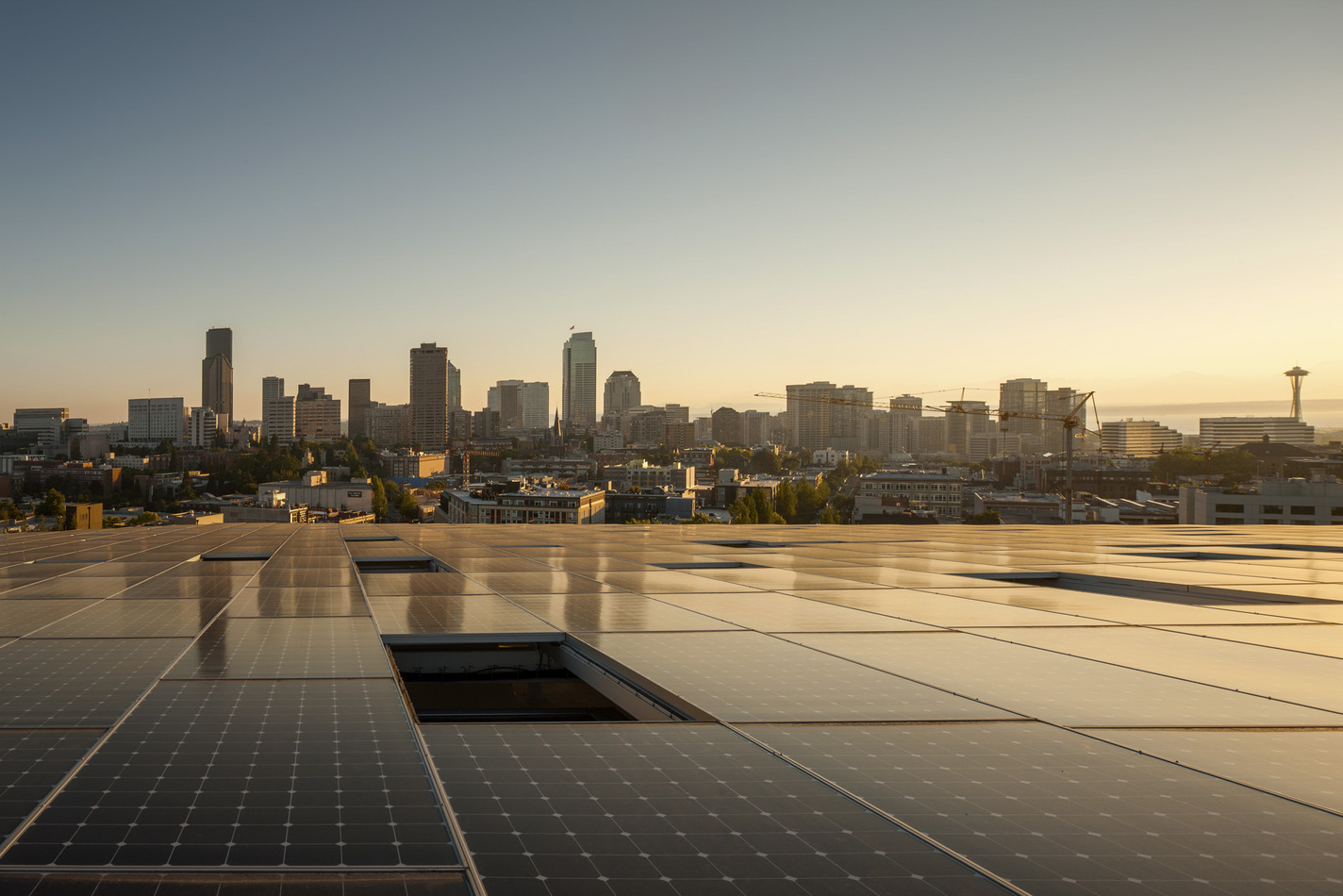2021 WA State Energy Code (WSEC) and Why it Matters
Washington state’s energy code helps sets the stage for the nation’s decarbonization movement
It’s been an exciting few months for climate advocates and building professionals in the state of Washington! On March 15, the landmark 2021 Washington State Energy Code went into effect. This is the first statewide energy code to promote largely all-electric construction legislation in the U.S. – and will push all new buildings in the state of Washington to implement high-efficiency heat pump technology for space and water heating. This is a major shift away from fossil fuels in the built environment and aligns with the state’s Climate Commitment Act to meet greenhouse gas drawdown goals in the building sector by 2050.
The new energy code, six years in the making, was developed as a stringent building standard by many AEC professionals and stakeholders (including some from PAE). The code enforces the aggressive energy efficiency gains and demand flexibility required to decarbonize one of Washington’s most emission-intensive sectors. The code council navigated several revisions to the code language to implement industry feedback and legal input. Most notably, the council introduced a fossil fuel compliance path to address legal uncertainty over the effective ban on natural gas and allow consumer choice of fuel source. The final code language, published in February 2024, allows for fossil fuel heating but requires additional energy efficiency measures to be implemented to normalize the energy use between electric heat pump technology and fossil-fuel-based combustion heating. It also requires electrification readiness infrastructure for future transition to heat pumps.
While this paradigm-shifting policy sets Washington on the path to meeting its carbon emission targets, it comes with new challenges. Implementation of all-electric space conditioning will vary in difficulty throughout Washington's different climate zones and markets.
In contrast to gas boilers, which create heat via the combustion of fuel, heat pumps transfer heat from one source to another using electricity as an input. They can be used to heat and cool buildings – meaning a heat pump plant can replace a conventional boiler and chiller central plant. Heat pumps can decarbonize the building sector as the electrical grid becomes cleaner and reduce energy use, as they are about three times more efficient than gas and electric boilers. Heat pumps introduce opportunities for further efficiency gains and resiliency, such as ground-source and heat recovery technologies. In extreme climates, heat pumps that rely on outdoor air for heating/cooling have degraded performance at peak conditions, which is a critical (and perhaps unfamiliar) design consideration many projects will face in the new code cycle.
Compared to traditional boiler/chiller configurations, air-source heat pump plants require more roof space, larger electrical service, and backup heating systems to extend reliability and operation in low-ambient conditions. Transitioning Washington’s building industry to new climate-adaptive technology, while exciting, has the potential for increased cost and a steep learning curve.
We have compiled a few of our takeaways from the code changes, combined with years of experience in all-electric design:
1. Coordination: The new code requires early, in-depth, and frequent coordination between all parties involved in the project – pushing projects to an integrative design process.
2. Load Reduction: It will be more important than ever to utilize load reduction strategies such as passive design and thermal storage. Reducing mechanical loads will reduce the impact of mandatory electrification on a building’s space planning, electrical service, backup heating system, and cost.
3. Cold Climate Considerations: Some air source heat pumps do not reliably perform at low-ambient temperatures. Colder climate zones will require backup heating sources such as electric or natural gas boilers (where permitted by code). Redundant heating plants come with cost and maintenance implications. Heat pump technology is continuously improving; there are promising developments in the industry to reduce or eliminate the need for backup heating in cold climates.
4. Adaptive Buildings: Load management and demand flexibility strategies will ease the burden of electrification on local utilities and the regional power grid. The code mandates onsite renewables and incentivizes energy storage and load management. Smart, adaptive buildings will be essential tools to successful electrification.
5. Knowledge Sharing: This will be our secret to success. Tackling climate change in the building sector will require the AEC industry and community to collaborate on ideas, share lessons learned, and support each other as we adopt new technologies.
Washington state’s energy code helps sets the stage for the nation’s decarbonization movement. The momentous development and adoption of this code will be a catalyst for other state’s policy making process to achieve their climate goals.
Are you interested in learning more about the nitty-gritty of the 2021 WSEC and other code changes in Washington? Check out our handy cheat sheet and reach out to Abbie Bullen for more information on the code updates and implications, or to schedule a presentation and discussion with our team.
In the meantime, here are some great resources:
Code development, adoption, and legal disputes:
Washington State Standard: Washington makes another run at heat pump rules
Washington State Standard: Builders launch initiative to block Washington's natural gas phase out
S&P Global: Nation's 1st statewide gas restrictions hang in balance of Wash. code dispute
K&L Gates: It's a gas! Federal and state developments continue to light up the natural gas debate
Heat pumps and emerging technology:
Yale Climate Connections: Do heat pumps work in cold places? Here's what you need to know
Natural Refrigerants: Industry experts in New York call for investment in R290 hydronic heat pumps
Flow Environmental Solutions
Advansor
2021 Washington State Energy Code
-By Abbie Bullen




